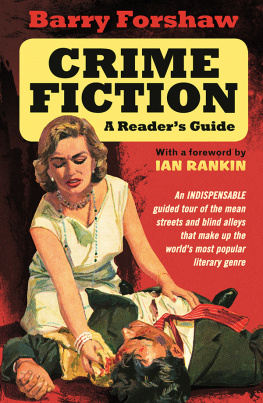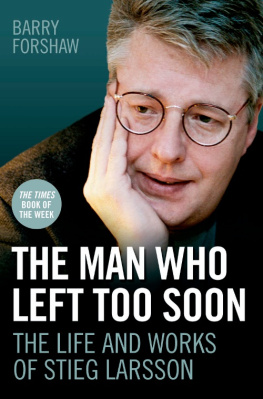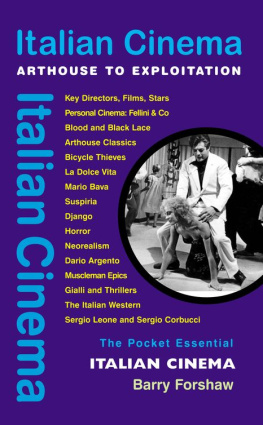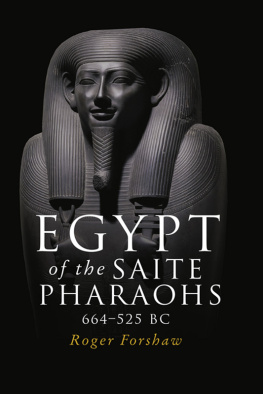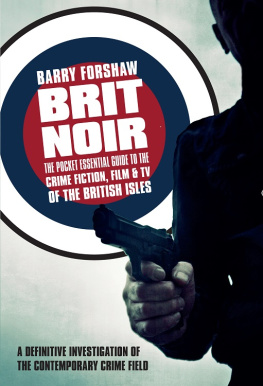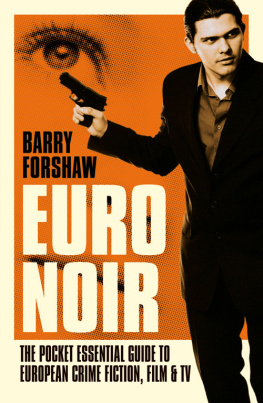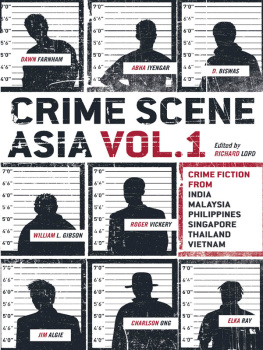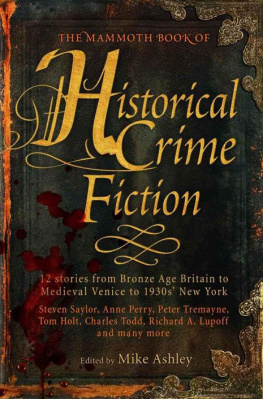Barry Forshaw - Crime Fiction: a readers guide
Here you can read online Barry Forshaw - Crime Fiction: a readers guide full text of the book (entire story) in english for free. Download pdf and epub, get meaning, cover and reviews about this ebook. year: 2020, publisher: Oldcastle Books, genre: Detective and thriller. Description of the work, (preface) as well as reviews are available. Best literature library LitArk.com created for fans of good reading and offers a wide selection of genres:
Romance novel
Science fiction
Adventure
Detective
Science
History
Home and family
Prose
Art
Politics
Computer
Non-fiction
Religion
Business
Children
Humor
Choose a favorite category and find really read worthwhile books. Enjoy immersion in the world of imagination, feel the emotions of the characters or learn something new for yourself, make an fascinating discovery.
- Book:Crime Fiction: a readers guide
- Author:
- Publisher:Oldcastle Books
- Genre:
- Year:2020
- Rating:4 / 5
- Favourites:Add to favourites
- Your mark:
- 80
- 1
- 2
- 3
- 4
- 5
Crime Fiction: a readers guide: summary, description and annotation
We offer to read an annotation, description, summary or preface (depends on what the author of the book "Crime Fiction: a readers guide" wrote himself). If you haven't found the necessary information about the book — write in the comments, we will try to find it.
Crime Fiction: a readers guide — read online for free the complete book (whole text) full work
Below is the text of the book, divided by pages. System saving the place of the last page read, allows you to conveniently read the book "Crime Fiction: a readers guide" online for free, without having to search again every time where you left off. Put a bookmark, and you can go to the page where you finished reading at any time.
Font size:
Interval:
Bookmark:


ALSO BY BARRY FORSHAW
Nordic Noir
Italian Cinema
American Noir
British Crime Film
Sex and Film
British Gothic Cinema
Euro Noir
Historical Noir
BFI War of the Worlds
British Crime Writing: An Encyclopedia
Brit Noir
Ian Rankin
H as crime fiction finally achieved the literary respectability that has long been its due? Certainly, crime novels are covered in the books pages of newspapers far more often than they were. But when a famous prize-winning literary novelist turned his hand in recent years to crime fiction, he felt obliged to put it out under another name. Is there still something disreputable about the genre?
While I have written in a variety of genres, I continue to find the crime novel the perfect vehicle for a discussion of contemporary issues in the most unflinching terms. After all, the detective has an all areas pass to every aspect of the contemporary urban scene, and this is a way for the crime writer to take the reader into forbidden territory; for instance, it was always my mission in the Rebus books to show people an Edinburgh that the tourist doesnt see. And crime fiction has always been good at articulating the fears that society has harboured at all moments of history such as the stranger who will casually take your life. Equally, the genre is able to deal with high moral purpose in quite as rigorous a fashion as Dostoyevsky did in Crime and Punishment and Dickens did in Bleak House .
Its difficult these days to write about contemporary life in a crime context and not have violence. Mind you, I dont think that is just an issue for the crime novel it is a problem for all contemporary fiction. Violence fascinates us because it is deemed unacceptable by society and therefore the people who commit violence are breaking our self-imposed rules, rules that underpin the very notion of civilisation. Rule breakers make us curious: why dont they want to be like us? Why do they make the choice not to conform? Do they actually make a choice, or is it made for them (by their genetic coding, their circumstances, etc.)? The crime novel should tackle the question of violence whether we reach any answers or not, shouldnt it?
People are interested in crime fiction because they are fascinated by the margins of the world, those places where societys rules break down. They wonder what they would do in similar situations, how they would cope. They learn how to deal with fear and the unknown. And at the end, they have the sense that a certain justice has been seen to be done.
Barry Forshaw has tackled these issues (and many others) in a book that covers crime fiction from every part of the world its a daunting task.
Ian Rankin , Edinburgh
A note on locating authors in
Crime Fiction: A Readers Guide
A s you will see, this study is divided into various sections and categories sometimes, I admit, a touch arbitrarily, but I felt I needed to give a coherent shape to the whole book. If you are seeking a particular author, my advice is not to second-guess what category Ive placed them in apart from anything else, several authors appear in multiple categories but to turn straight to the indexes at the end of the book. And if Ive missed a favourite author, I trust you will cut me some slack. Ive tried to be as inclusive as possible, but in a book of this size it was inevitable that there would be many omissions. Not that this caveat will get me off the hook I tried to be as comprehensive as I could with my arm-straining two-volume, 900-page encyclopaedia, British Crime Writing , but over the years people have relished pointing out to me who is missing
I s it possible to predict the direction crime fiction will take now that we are well into a new century? Initially, the auguries are bad: many classic genres (notably the police procedural) have undergone a distinct hardening of the arteries, as inspiration gives way to clich and innovation to repetition. As all hard-pressed crime writers know, it becomes increasingly tough to come up with something new. Editing Crime Time magazine, most of the letters I received lamented the difficulties of tracking down that one fresh and inventive novel among much that is shall we say warmed over. And yet crime fiction remains ( pace books about witches, wizards, dragons and spurious codes) one of the few evergreen areas of modern publishing, with fresh trends continually appearing, including the Nordic noir wave (still healthy) and domestic noir, both covered herein.
While a case can be made for the origins of the crime novel lying in the 19th century, equally plausible cases can be made for antecedents even further back. It is cold comfort that, according to the Bible, when Cain slew Abel, the third human ever created had managed to murder the fourth. A little later, Sophocles Oedipus Rex , a search for the truth about himself, has all the classic ingredients of the psychological mystery, even down to the final painful acquisition of knowledge leading to the destruction of the protagonist, and most of his family. Noir territory, indeed. No less dark are William Shakespeare s pivotal assassination dramas Julius Caesar (think conspiracy theories) and the malign Scottish play (for Lady Macbeth read almost every femme fatale to glower from the silver screen). But, while we can possibly shoehorn the Bible, Sophocles and Shakespeare into the genre as progenitors of crime fiction, the concept of the cliffhanger mystery novel took off in the 19th century almost equally and simultaneously in gothic, Romantic and realist writing. Where the gothic writers preferred a darkly supernatural sense of suspense and denouement, horribly real cops, secret agents and villains occur regularly in the work of Honor de Balzac , while the worlds first dogged detective (albeit also a blackguard) trails Victor Hugo s Jean Valjean through almost every page of Les Misrables (1862).
An obsession with crime, the dark, nefarious underworld and just retribution was revealed in the popularity of publications such as The Newgate Calendar , and by the end of the century lurid penny dreadfuls and shilling shockers vied for bookstand space with Bram Stoker s comparatively respectable parlour-piece Dracula (1897), just as the worlds first serial killer, Jack the Ripper, was stalking the streets of Whitechapel, and canny film producers were seeking sensational stories to project onto the minds of a willing and hungry public huddled in circus tents.
But the most significant innovation of the 19th century was that of American polymath Edgar Allan Poe s C Auguste Dupin, who first displayed the requisite cool ratiocination and ability to marshal facts that were to become the sine qua non of the investigative detective. Poe even created the less brilliant follower for his detective (in order that the heros mental pyrotechnics might be displayed more satisfyingly). Poe was greatly admired in France, and translation of his work by Baudelaire (among others) was to spread his influence far beyond the provincial Stateside streets of Baltimore and Richmond.
Leaving aside Charles Dickens Inspector Bucket and Mr Nadgett (who certainly deserve namechecks in any overview of crime fiction) and the masters unfinished murder novel The Mystery of Edwin Drood (1870), it is tidier to settle on his friend Wilkie Collins , with The Woman in White (1859) and The Moonstone (1868) as the first instances of great crime novels. A reacquaintance with these two most readable books demonstrates that many of the key elements we recognise so well (notably the hyper-intelligent, hyper-ingenious villain, the slightly dim hero whom we follow piecing together the mystery, and a narrative crammed full of delicious obfuscation) are firmly in place. But it is also salutary to note that one element the elegance and polish of the prose has become less common since those distant days. Whenever the diehard crime reader picks up a modern novel as well written as Collins were, its a cause for some celebration. Of course, eventually the genre had to accommodate lean, pared-down prose as much as Collins more intricately orchestrated language. It was a matter of economics, cut-and-thrust suspense, and popular appeal.
Font size:
Interval:
Bookmark:
Similar books «Crime Fiction: a readers guide»
Look at similar books to Crime Fiction: a readers guide. We have selected literature similar in name and meaning in the hope of providing readers with more options to find new, interesting, not yet read works.
Discussion, reviews of the book Crime Fiction: a readers guide and just readers' own opinions. Leave your comments, write what you think about the work, its meaning or the main characters. Specify what exactly you liked and what you didn't like, and why you think so.

